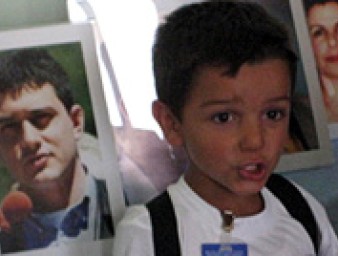Emergency powers should be limited and proportionate - UN anti-terrorism expert
13 March 2018

In her latest report, UN Special Rapporteur on counterterrorism, Fionnuala Ní Aoláin, addresses the human rights challenges of states of emergencies in the context of countering terrorism.
"States of emergency are synonymous with extensive and sustained human rights violations," said Fionnuala Ní Aoláin, UN Special Rapporteur on counterterrorism and human rights while presenting her first report to the Human Rights Council in Geneva.
"These patterns have been empirically documented for decades underscoring the need for sustained oversight of emergency powers, and robust review to ensure that states of emergency are not being used disingenuously by States to thwart fundamental rights including due process, freedom of assembly and expression, family life, privacy; and violations of non-derogable rights, including the right to be free from torture and arbitrary deprivations of life," she added.
Ní Aoláin’s report addresses the challenges to human rights of states of emergency in the context of counterterrorism and, in particular, she identifies new post-9/11 emergency practices that have had an adverse effect on human rights.
The Twin Towers attack, she wrote, sparked what the United States then declared as a "global war on terror" which became the basis for practices that blurred the distinction between times of war and peace.
The expert noted that human rights law has enabled States to limit derogable rights in exceptional circumstances. She added, however, that powers arrogated during emergencies should be limited and should provide a positive basis by which to return to full human rights protection within a reasonable timeframe.
"This permission is not a carte blanche for permanent restrictions. Nor is it a basis to abuse rights simply to consolidate power, to snuff out legitimate dissent, and to quell political opponents," she said. "Critically, any restriction must function as a means to return the legal system to normal, rights protective functioning."
Ní Aoláin pointed out that in the global aftermath of 9/11, domestic legislation has enabled the proliferation of states of emergency that have been facilitated by domestic laws that use overly broad definitions of terrorism.
"Such legislation is being used to target a range of civil society actors, human rights defenders, bloggers, political activists of various hues, and those who simply disagree with the government in power," she said. "These deployments of counter-terrorism laws are an abuse of law and they contravene of the obligations taken on willingly by States when they sign and ratify human rights treaties."
Ní Aoláin also highlighted that States already have legal systems robust enough to respond to violence and to not use emergencies to regulate terrorism. Instead, she said, States "spiral towards ever-trenchant and rights negating legal responses."
She reminded States that oversight of counterterrorism measures is essential to human rights protection, and that national oversight could be reinforced by international scrutiny. She also gives States recommendations on how they can remain compliant with their international human rights obligations.
One of these recommendations is for States to undertake independent and robust periodic reviews of their counterterrorism legislation to assess whether their effect on human rights is necessary and proportionate.
States must also pay particular attention to how emergency measures disproportionately affect ethnic and religious minorities, vulnerable groups, and the gendered ways in which they affect women. To assess this, independent data should be collected.
13 March 2018




